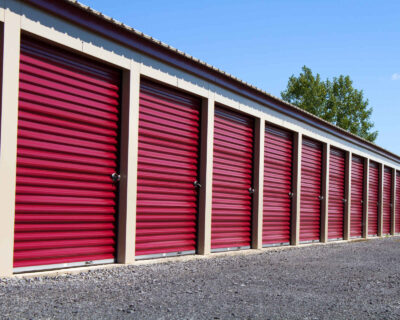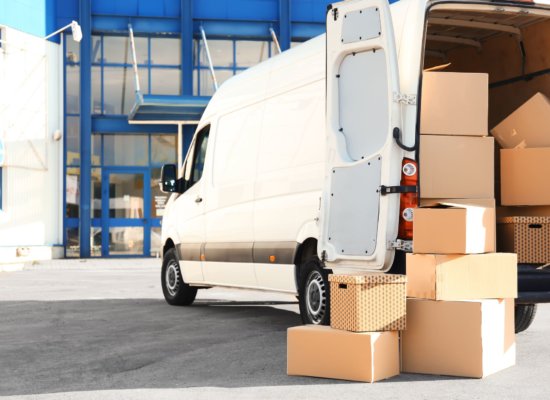Understanding the Costs – How Much is Car Shipping From One State to Another?
For those relocating out of state, transporting a car is usually one of the biggest concerns. Booking professional auto transport is usually a good solution, but how much is car shipping from one state to another? While the allure of a cross-country drive might appeal to some, the practicality of vehicle transportation can’t be ignored. Join us as we break down the expenses and provide clarity on this vital aspect of your relocation.

How Much Is Car Shipping From One State to Another?
The average price of shipping a car from one state to another depends on the travel distance and chosen transportation method. Understanding the intricacies of car shipping costs can be akin to piecing together a complex jigsaw puzzle. Here are the average costs per mile for transporting a vehicle across short, medium, and long distances.
| Travel Distance | The Average Cost Per Mile | Transportation Option |
|---|---|---|
| 500 miles | $1.65 | Open Trailer |
| Up to 1,000 miles | $1.20 | Open Trailer |
| Up to 1,000 miles | $1.75 | Enclosed Trailer |
| 1,500 miles | $0.95 | Open Trailer |
| 1,500 miles | $1.15 | Enclosed Trailer |
| Over 2,000 miles | $0.70 | Open Trailer |
Essentially, if you do not feel like driving your vehicle to your future location, you can always hire a car shipping company to handle it on your behalf. But know that costs can vary between different service providers.
Understand the Fundamentals of Car Shipping and Transportation Services
Transporting a vehicle, especially over long distances, involves more than just driving it from Point A to Point B. With advances in logistics and the quality of auto transport services, numerous solutions have emerged to cater to the diverse needs of individuals and businesses. Let’s dive into some of the core components of this process.
Open vs. Enclosed Trailers – Weighing Their Pros and Cons
When it comes to shipping your vehicle to another state, the choice between open and enclosed trailers can make a significant difference. Open trailers are the more common and affordable option, with cars being transported on large racks. While they’re cost-effective and faster, vehicles on open trailers are exposed to the elements and potential road debris.
On the other hand, enclosed trailers offer a more protective environment, shielding the vehicle from external factors. This makes them an ideal choice for luxury, vintage, or specialty cars, though they come at a higher price point.
Choose Between Door-To-Door vs. Terminal-To-Terminal Services
The convenience of having your vehicle picked up from your doorstep and delivered directly to your new location sounds appealing, and that’s precisely what door-to-door services offer. It eliminates the need for you to drive your vehicle to a designated pickup point.
However, it might be slightly more expensive than terminal-to-terminal services. With the latter, you’ll drop off and pick up your vehicle at specific transportation terminals. While this might mean additional work on your part, it can prove to be a cost-effective option, especially if you’re relocating on a budget.

Dive Into Factors That Affect the Costs
Keep in mind that multiple factors can shape the final price tag on the relocation of your vehicle. These elements can vary depending on individual circumstances and external conditions, but understanding them can offer a clearer picture of the potential expenses and help you set your relocation budget properly.
Accessibility of Your Future Location Can Affect Your Budget
Distance indisputably influences the cost of transporting a vehicle. But beyond the mere mileage, the accessibility of the pickup and delivery locations significantly impacts pricing. For example, relocating a vehicle to a remote or challenging-to-reach area could carry a higher fee than a location situated near major highways or transportation hubs.
Additionally, the availability and nature of parking at the destination can further influence costs. If you are aware that your location lacks adequate parking or requires specialized accommodations for unloading, make sure to inform your cross-country movers before the moving day. This can greatly mitigate the additional charges.
Choose the Time of the Year Well When Relocating Your Car
Certain times of the year, especially during peak relocation seasons or harsh weather conditions, might see an increase in prices. For instance, relocating during the winter might be pricier in areas prone to snow, while summer might see a surge in demand and, subsequently, higher rates. It’s essential to be aware of these seasonal fluctuations when planning your relocation and transportation of your four-wheeler.

Insurance and Liability Options and Their Role in the Final Costs
Ensuring the safety and security of your vehicle during transit is paramount. However, before finalizing any shipping agreement, it’s crucial to understand the ins and outs of the insurance coverage that your long-distance moving company provides. Let’s dive into the specifics.
Explore What Standard Insurance Plans Offer for Open vs. Enclosed Trailers
When entrusting your vehicle to an auto transport company, the insurance coverage differs based on the type of trailer you choose. For open trailers, the standard insurance package generally offers partial coverage, typically up to $100,000. This covers damages resulting from accidents during transit and external effects.
On the other hand, if you opt for an enclosed trailer, the coverage is significantly higher, often reaching up to $500,000, providing additional protection against potential mishaps. However, the exact specifics can vary between transport providers. Thus, thoroughly reviewing the policy terms and seeking clarifications is imperative to ensure a safe relocation.
Take Additional Insurance to Completely Safeguard Your Auto
Keep in mind that there are situations where you might want to consider adding extra layers of protection, especially if your vehicle holds significant value or sentimental importance. Additional insurance offers an enhanced coverage limit, ensuring that even in the rare event of substantial damage or total loss, you are adequately compensated. It acts as a safety net, giving you peace of mind knowing that your vehicle is safeguarded against all possible scenarios during transit.

Do Your Research and Get an Accurate Quote
When preparing for a significant event, such as relocating to another state, securing an accurate quote is pivotal. The quotation not only determines your relocation budget but also allows you to assess the credibility of the service provider. However, the art of obtaining a precise quote goes beyond just asking for numbers. It involves thorough research, understanding market rates, and ensuring you’re comparing apples to apples.
Moving Services
Whether you are moving from New York to Los Angeles or from San Francisco to Chicago, we can help you.
Read moreStorage Service
Knowing what kind of surprises cross country move may hold, we offer 30 day free storage for belongings at the origin state.
Read moreMoving Insurance
Flat Price Moving and Auto Transport Company offers moving insurance to cover potential damages
Read moreAsk the Burning Questions, and You Will Get the Right Information
The key to obtaining a comprehensive and transparent quote lies in asking the right questions. Start by inquiring about the basic costs of transport, then delve deeper into additional charges, potential hidden fees, and the specifics of their service offerings.
Questions regarding the security of their storage facilities, delivery timelines, and custom carting are all valid points as well. Furthermore, make sure that you understand all their policies regarding potential delays, cancellations, or changes in the transportation plan. By being thorough in your questioning, you ensure that there are no surprises or last-minute rushes.

Learn About Some Common Mistakes You Should Avoid
Forewarned is forearmed. When cross-country moving, having a grasp of potential pitfalls can save you not just money but also a great deal of relocation stress. While everyone hopes for a seamless move, it’s the unexpected issues that can catch us off guard.
Familiarizing yourself with these commonly overlooked things is an essential step toward ensuring a smooth and stress-free transition. Let’s reflect on some relocation mistakes that can end up costing you more money or cause other issues in the long run:
- Neglecting online reviews – the Internet is a trove of firsthand experiences. Not tapping into online reviews deprives you of insights into a company’s track record. Always make it a point to read reviews to get a sense of the quality and reliability of the service offered.
- Being lured by low prices alone – while saving money is crucial, opting for a service based on price alone can be a recipe for disaster. Sometimes, cheaper companies cut corners, leading to potential damage or delays. It’s essential to balance cost with quality.
- Overlooking insurance – skipping insurance to save a few bucks might seem tempting, but it’s a gamble. In the unfortunate event of damage during transit, the absence of adequate insurance can lead to significant out-of-pocket expenses.
- Glossing over the fine print – details matter. Ignoring the fine print in your service agreement can lead to unexpected fees or conditions. Always ensure you fully understand the terms of service before signing on the dotted line.
- Handing over an unclean vehicle – not cleaning your vehicle might seem harmless, but a dirty automobile can hide deep scratches or dents. A good move-out cleaning session ensures that the transporter and you have a clear view of the vehicle’s pre-shipping condition.
- Neglecting the fuel gauge – forgetting to leave a quarter tank of fuel can cause issues during the transportation process, especially when moving the vehicle on or off the carrier. Always ensure you have the recommended amount of fuel.
- Bypassing documentation – not documenting the previous state of your vehicle can lead to disputes if damages occur. Always take clear photos and notes of your vehicle’s condition before handing it over.

With Us Handling Your Relocation, You’ll Be Flaring Through Streets in No Time
Every relocation of a vehicle is complex, but having the right partner at your side can make all the difference. That is where Flat Price Auto Transport and Moving’s expert crew comes into the picture. We are well-versed in seamless vehicle transportation. Our dedicated team has a stellar reputation for handling automobiles with the utmost care and precision.
However, we are not only experts in this field but in top-notch long-distance moving services as well. To ensure the safety of your belongings throughout shipping, our team has you covered with professional packing services on top of it all. So, if you’re dreaming of a smooth relocation, don’t shy away from contacting us today. We’ll be there to support you every step of the way.
FAQ
How Far in Advance Should I Book Car Shipping?
Ideally, booking your car shipping 2-4 weeks in advance provides sufficient time for logistics and ensures availability. So make sure that you hire your moving company on time.
How Do I Prepare My Car for Shipping?
Preparing your vehicle for relocation is important because it lowers the possibility of interior damage, unwanted odors, or losing important documents and possessions. Here are some preparation steps you should include:
- Cleaning your vehicle inside and out to easily identify any damages.
- Removing all personal belongings and valuables.
- Disabling the alarm system.
- Checking the battery, tire pressure, and fluid levels.
- Leaving only a quarter tank of fuel for weight and safety reasons.
- Documenting the current state of the vehicle, preferably with photos.
What Happens if My Car Is Damaged During Shipping?
If you notice any damage upon delivery, document it immediately on the Bill of Lading before signing off. Contact the auto transport company to discuss compensation, as most legitimate companies will have insurance in place to cover such eventualities.
Is It Cheaper to Drive or Ship My Car?
The decision comes down to multiple factors, including distance, fuel costs, wear and tear on the vehicle, and potential accommodation and food expenses for long drives. While driving might seem economical for shorter distances, shipping often becomes a more practical and cost-effective option for longer interstate moves.
Can I Cancel My Car Shipping? Are There Any Penalties?
You should know that cancellation policies vary by company. Some might offer a full refund if you cancel well in advance, while others might charge a fee. Always review the terms and conditions of your agreement and communicate any changes as soon as possible with your long-distance movers before giving your seal of approval.











